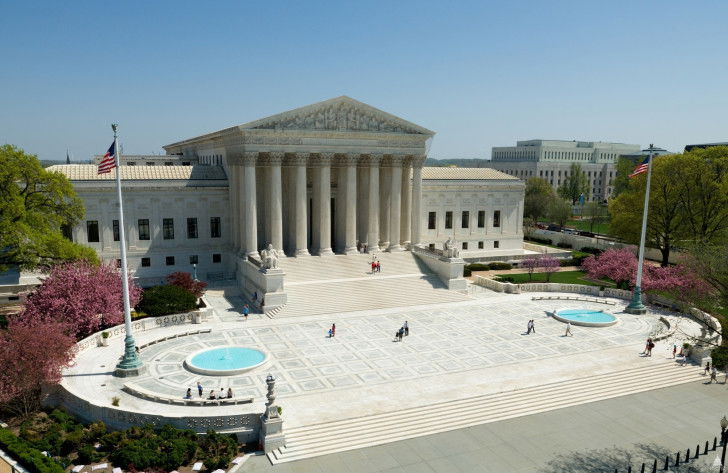America
US Supreme Court strikes down race-based affirmative action in college admissions

Washington, June 29
In a landmark judgment, the US Supreme Court on Thursday declared race-based affirmative action in college enrollment unconstitutional.
The court held affirmative action violative of the US Constitution’s 14th Amendment, which guarantees equal protection.
All six conservative justices, including Chief Justice John Roberts, ruled to strike down affirmative action, while the three liberals ruled against.
The court’s ruling came in a challenge to the race-based affirmative action by Harvard and University of North Carolina.
“The student must be treated based on his or her experiences as an individual—not on the basis of race,†Chief Justice Roberts wrote in the majority opinion.
“Many universities have for too long done just the opposite. And in doing so, they have concluded, wrongly, that the touchstone of an individual’s identity is not challenges bested, skills built, or lessons learned but the color of their skin. Our constitutional history does not tolerate that choice.â€
Roberts added that the court had previously “permitted race-based admissions only within the confines of narrow restrictions. University programs must comply with strict scrutiny, they may never use race as a stereotype or negative, and -- at some point -- they must endâ€.
Justice Sonia Sotomayor wrote in her dissent note for the minority decision that the ruling “rolls back decades of precedent and momentous progress. It holds that race can no longer be used in a limited way in college admissions to achieve such critical benefitsâ€.
“In so holding, the Court cements a superficial rule of colorblindness as a constitutional principle in an endemically segregated society,†she added.
But the court allowed for colleges to consider race in discussions in the admission process — an applicants can bring up race in their essays and applications forms as a factor in their life, as an impediment or an inspiration.
Roberts wrote that “nothing in this opinion should be construed as prohibiting universities from considering an applicant’s discussion of how race affected his or her life, be it through discrimination, inspiration, or otherwiseâ€.
While the ruling will end affirmative action based on race, universities would be able to switch to using socio-economic factors in the admission process, which could be based on the applicants’ family incomes or residential address.

55 minutes ago
Ran a fake embassy for nearly 8 years; styled himself as the "Baron of Westarctica"; accused arrested.

4 hours ago
Racist attack on Indian national in Ireland: Embassy says in touch with authorities

4 hours ago
'It was back and forth': Trump repeats ceasefire claim between India, Pakistan

4 hours ago
US House Republicans push to rename Kennedy Center Opera House after Melania Trump

4 hours ago
Japan will pay 15 pc 'reciprocal' tariffs under trade deal: Trump

5 hours ago
Trump accuses Obama of 'treason' amid Epstein drama

5 hours ago
"F*** off, Indian": Indian man brutally attacked in Adelaide, left to die in suspected racist assault

5 hours ago
ITServe Alliance Members Log 21 Million+ Steps in 2 Months

5 hours ago
"Handled with professionalism...working with UK authorities": MEA on British media report over identification of two victims of Air India plane crash

8 hours ago
US House Republicans push to rename Kennedy Center Opera House after Melania Trump

8 hours ago
Obama office rejects Trump's 'treason' charge, calls it 'weak attempt at distraction'

8 hours ago
'You are not alone': Trump aide meets Imran Khan's sons in US, calls for end to 'political prosecutions'

8 hours ago
US Special Envoy to visit Middle East to finalise Gaza aid corridor
































